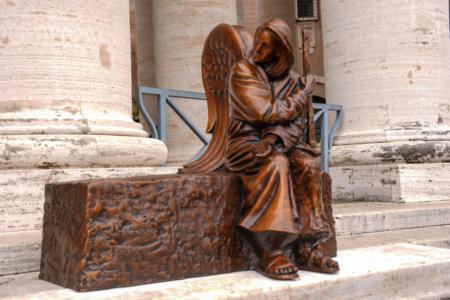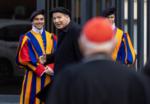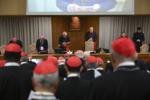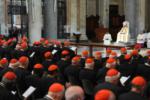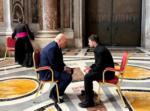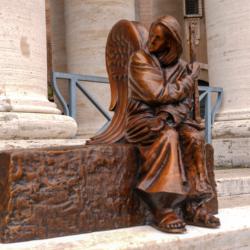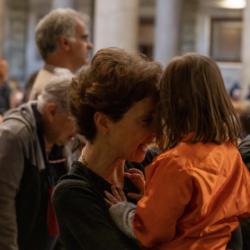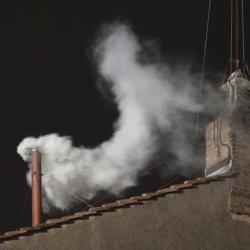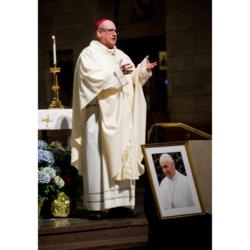Money from closures will help other parishes, official confirms
Kathleen Heck, special assistant to the Moderator of the Curia, Bishop Richard G. Lennon, confirmed Feb. 24 that monies from parishes closed during the reconfiguration process will be used solely for parish-related expenses.
“The proceeds from the sales of closed parishes will be placed in a ‘Fund for Parishes,’ from which debts incurred by the closed parishes will be paid off,” explained Heck. “Once all the outstanding debts have been paid, any monies that remain in that fund will be available for parish renewal programs.”
According to a Feb. 13 letter to the priests of the archdiocese written by Bishop Lennon, the funds will help pay “vendors who are owed monies from suppressed parishes,” will cover “unfunded pension liability for employees of suppressed parishes,” will aid in the “expenses involved in the closure of suppressed parishes” and will establish “an endowment fund for parish support.”
“As you can see a large portion of the assets from suppressed parishes will be needed to address very immediate past due obligations and employee benefits of the suppressed parishes,” the letter continued.
The letter also indicated that some of the monies will be used to reestablish the Revolving Loan Fund that provided loans to parishes in times of need. In recent years demands on the fund had outpaced contributions and the archdiocese made up the shortfall. In 2003, the archdiocese was forced to discontinue its subsidy due financial constraints.
Following the release of Bishop Lennon’s letter, media reports indicated that the funds acquired through the sale of parish properties would become part of a general archdiocesan fund, a claim strongly refuted by Heck.
“The money will be used only for parishes,” she stressed. In addition, Heck pointed out that any transfers of money “in or out of the fund” will be “trackable on the archdiocese’s website, as well as in The Pilot.”
“Anyone on the planet who wants to know what is going on with the money will have access to that information,” she declared.
Heck also responded to the claims in media reports that merging parishes, rather than closing parishes, would benefit individual parishes, because any proceeds made from the sales of church property would revert to the merged parish.
Heck explained that, although it is true that in the case of merged parishes the assets automatically transfer to the merged parish, liabilities are also assumed by the newly merged parish. However, when one parish is closed, the debts are not incurred by the “welcoming parish.”
Bishop Lennon also echoed the same sentiment in his Feb. 13 letter.
“It is the archbishop’s intention that the reconfiguration process will lead to some parishes closing and other parishes welcoming parishioners from the closed parishes. The archbishop has deliberately chosen the canonical procedure of suppression rather than that of merger. There are many reasons for this choice. As you probably already know, when there is a merger of two or more parishes the assets and liabilities of the parishes belong to the new parish that is formed from the merger, whereas when there is a suppression, the assets and liabilities of the parish that is suppressed or closed belong to the Archdiocese of Boston,” he wrote.
“From the very beginning of the Rebuild My Church/Reconfiguration Process, everyone has always talked of closings. No one has ever used the word ‘merge’ because merger is not the model,” underscored Heck.
She pointed to the fact that in the past 20 years, nearly 75 percent of all parish reconfigurations have been suppressions, not mergers, indicating that closing parishes is the more common thing to do.
Heck believes that, despite the current confusion over the Parish Fund, the reconfiguration of parishes will only serve to strengthen the Archdiocese of Boston.
“This isn’t about being smaller, it’s about being stronger. You don’t get stronger by over-extending yourself,” Heck stated. “A parish is created by the people, not the buildings.”
